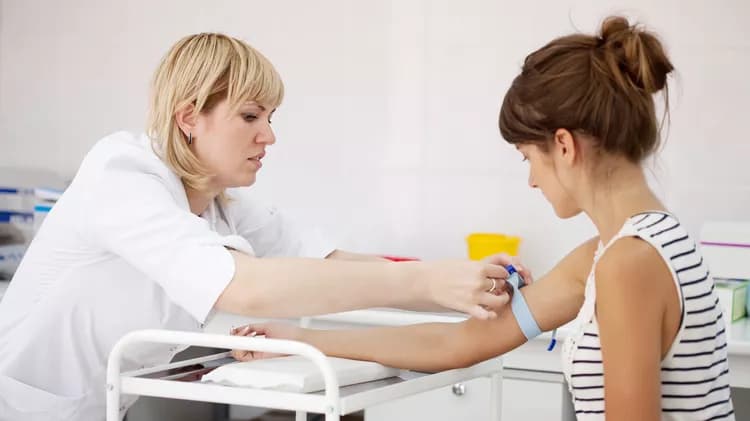
World Hemophilia Day: “Building a Family of Support”
World Hemophilia Day was established to promote awareness about hemophilia and other inherited bleeding disorders, with intentions to ensure a better diagnosis and access to care for those affected. The 2015 theme is “building a family of support”, emphasizing the need for family involvement for those suffering from these conditions. According to the World Federation of Hemophilia, about 6.9 million people suffer from a bleeding disorder, while 75% of these individuals do not even know it.
Hemophilia is an inherited bleeding disorder that slows the process of blood clotting. a. Those with a more severe case of hemophilia have continuous bleeding following minor damage. However, it is also possible for spontaneous bleeding to occur in the absence of an injury. The continuous bleeding occurs due to a lack of necessary clotting factor to form a proper blood clot. Other types of bleeding disorders include von Willebrand disease and inherited platelet disorders.
According to the U.S. National Library of Science, males have a higher incidence of hemophilia than females. The disorder is X-linked, meaning the mutation must be present on an x chromosome to develop hemophilia. Since men have only one X chromosome, if it is mutated, they will develop the disorder. Women, who have two X chromosomes, have to have mutations on both to develop hemophilia. Therefore, the disease is much less prevalent in women.
Hemophilia can be categorized into two main types: hemophilia A (also called classic hemophilia or factor VIII deficiency) and hemophilia B (also called Christmas disease or factor IX deficiency). Even though both types have comparable signs and symptoms, they differ in their genetic mutations.
Hemophilia A
Patients with hemophilia A inherit a genetic deficiency in clotting factor VIII, causing increased bleeding. Hemophilia A is the most common type of hemophilia; with approximately 1 in 4,000 to 1 in 5,000 males around the globe who inherit the disorder.
Symptoms of hemophilia A can vary based on severity and include excessive or prolonged bleeding from cuts, bleeding into the joints, joint pain or stiffness, blood in urine or feces, bruising on the ankles, hips, and knees, and fatigue. It is generally diagnosed using blood coagulation blood tests and radiology imaging techniques. Though hemophilia A cannot be cured, treatment options are available based on the severity of the case. Learn more about hemophilia A here.
Hemophilia B
Patients with hemophilia B inherit a genetic disorder in clotting factor IX protein levels that are either absent or available in limited quantities. Hemophilia B is inherited in about 1 in 25,000-30,000 newborn males around the world. Symptoms of hemophilia B can vary based on severity and generally include prolonged bleeding after surgical procedures, tooth extractions, cuts, etc., excessive bruising, blood in urine or feces, internal bleeding, cranial bleeding in childbirth, and spontaneous bleeding. Hemophilia B is diagnosed using coagulation studies to pinpoint the specific defect present in the patient. Factor assay tests help distinguish between hemophilia A and B. Like hemophilia A, hemophilia B cannot be cured, but treatment is available based on the severity of the case. Learn more about hemophilia B here.
In light of World Hemophilia Day, take a moment to engage in a conversation with others about hemophilia or show support to friends or family who have a bleeding disorder. Each individual can play a key role in helping to improve and change the lives of those affected. Alain Weill, the WFH president, adds “We are all working together in the fight to raise awareness and improve care.”
The World Federation of Hemophilia has also suggested several ways to get involved on World Hemophilia Day. Click here for more information.
References:
(2015 Apr). World Hemophilia Day 2015. Retrieved from http://www.wfh.org/en/whd
(2012 Aug). Hemophilia. Retreived from http://ghr.nlm.nih.gov/condition/hemophilia
(2015 Mar 6). Hemophilia A. Retrieved from http://www.dovemed.com/hemophilia-a/
(2015 Mar 6). Hemophilia B. Retreived from http://www.dovemed.com/hemophilia-b/
Related Articles
Test Your Knowledge
Asked by users
Related Centers
Related Specialties
Related Physicians
Related Procedures
Related Resources
Join DoveHubs
and connect with fellow professionals

0 Comments
Please log in to post a comment.